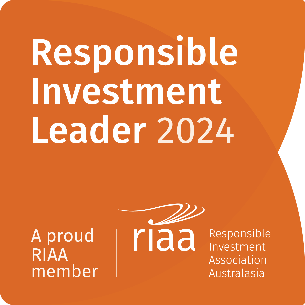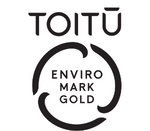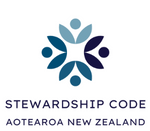Better reporting by New Zealand companies needed on climate change

5th October 2020: During the past month we were very excited by the launch of our Sustainability Fund. Although we have always been recognized for integrating Environmental, Social and Governance considerations into our investment process, this new Fund is an explicit representation of our expertise in this area. This is evidenced by us being a signatory to the globally recognized Principles for Responsible Investment, a signatory to Climate Action 100+ and a member of the Responsible Investment Association Australasia (and acknowledged in their latest Benchmark Report as one of the top performing New Zealand-based managers in applying a leading approach to responsible investment). In our determination to lead the New Zealand industry in this area, we are continually looking for initiatives that will contribute to better sustainable practices by the business community. Recently this has included a proprietary survey being conducted by Devon of all the major listed companies on the NZX50 Index, to help us understand their views on climate-related risks. This is an area that we take very seriously and believe will have a material impact on investment returns in the years ahead.
Overshadowed by the COVID-19 pandemic, the 2019/2020 Australian bushfire season has largely been forgotten by the public despite it being one of the worst ecological disasters to happen in this part of the world in recent memory. But between July 2019 and January 2020, almost 47 million acres of the “Lucky Country” was charred by the bushfires, equivalent to 1.3 times the surface area of New Zealand’s South Island. Australia’s Department of Industry, Science, Energy and Resources estimated that up to 860 million tonnes of CO2 was released into the atmosphere as a consequence of the flames. If the 2019/2020 Australian bushfire season was a country, it would be the sixth most polluting nation on the planet, behind only to China, the United States, India, Russia, and Japan. These fires served as an important reminder that as our environment continues to move beyond the envelope of natural variability, climate-related risks will have an increasing influence on how and where we invest. We only need to look at the USA currently, which is experiencing huge bushfires on one coast and massive storms on the other.
When it comes to investing and valuation, most professional investors make assumptions about companies’ future cash flows and discount them back to a present value. The point of this exercise is to enable us to understand different companies operating in different areas of the economy and make their valuations comparable. For example, it allows us to take a wine company and an airport and reduce each business to a set of risk adjusted cash flows, which we can then compare on the same basis. Climate change complicates this process. Whether it be through a fall in the yields of vineyards, due to increased drought frequency, or the reduced lifespan of an airport runway, due to rising sea levels, the challenge for investors is increasing.
Historically, climate-related risks have been something abstract that some practitioners captured in the discount rate used, or outright ignored. But last summer’s bushfires revealed that climate-related risks are no longer something abstract, but rather have become something we can literally smell in our nostrils and see in the skies halfway around the world. And climate-related risks are exactly what investors of Australian listed wine company Treasury Wine Estate had to think about during this past Southern Hemisphere summer. Wine Australia, the government body which regulates the country’s wine industry, reported that 40,000 metric tonnes of grapes were lost, rejected or downgraded as a direct result of that fires and smoke from the 2019/2020 bushfire season. Combined with other adverse environmental factors, Australian wineries saw a 12% drop in winegrapes crushed this year compared to the prior year. The 2019/2020 harvesting season was also the worst year of harvest since the 2006/2007 season, with wineries across Australia reporting 13% less wines crushed compare to the 10-year annual average volume. Our research into listed wine companies in Australasia also revealed to us that climate change is having an impact on wine growing regions beyond this part of the world. As the effects of climate change intensify over the next thirty years, California is expected to see a 70% drop in area suitable for viticulture. And at the center of the most prominent wine region in the world (Bordeaux, France), climate change has irreversibly changed the taste profile of the wines produced there. Furthermore, in the past three years some vineyards in Bordeaux have experienced a more than 80% fall in wine grape harvested. There is no question that climate change will disrupt the production of premium wines for future generations, affecting the sustainability of the future cash flows of these companies.
As the climate shifts, the future of all agriculture is in question. But what about other sectors that traditionally have been considered to have low climate-related risks? Specifically, listed New Zealand companies that make up our country’s headline index, the NZX50. Recently we engaged with all the companies on the NZX50, surveying their views around climate-related risks. The result from our survey was very revealing, and somewhat concerning - 36% of the NZX50 companies responded that climate change is already having an impact on their day-to-day operations! And another 42% of the companies reported that they expect climate change will have an impact on their businesses in the future, either within the next five years or over a longer time horizon. The results are interesting because it shows that despite being in New Zealand, an island nation with a relatively temperate climate, companies here are still not immune to climate change. But the more worrying fact is that if we had not engaged with these companies, we would not have uncovered that climate-related risks are already having an impact to so many listed companies in New Zealand. Is this a failure in disclosure?

Over the last decade, Environmental, Social and Governance (ESG) reports have become an increasingly common form of disclosure from NZX50 companies. And as at June 2020, 62% of the NZX50 companies self-reported that they publish an annual ESG report, either as an independent document or as a chapter within their integrated annual report. But our experience as investors tell us that the quality of disclosure can vary between companies. As a result, investors usually cannot compare ESG metrics on a like-for-like basis. The shortcomings in ESG disclosures also flows into disclosures around climate-related risks. Consequently, investors of listed New Zealand companies are less aware of climate-related risks than they ought to be.
To address this shortcoming, the Taskforce on Climate Related Financial Disclosure (TCFD) has developed a set of disclosure recommendations specifically for management to inform investors about climate-related risks to their companies. Adoption of TCFD will also make climate-related risks between companies in different sectors more comparable. During the month of September, the Government announced new legislation that will require all major financial institutions to comply with TCFD reporting. The new regime does require parliamentary approval, and if approved, will be implemented in 2023. The new legislation will require all banks, asset managers and insurance companies with more than NZ$1 billion in AUM to report their climate risks in accordance with the TCFD reporting framework. This is a watershed moment for New Zealand as it will become the first country in the world to make thorough climate risk reporting mandatory for all large banks, asset managers and insurance companies. But as it stands today, only seven companies on the NZX50 have adopted the TCFD framework to report their climate-related risks, with two additional companies informing us that they will publish their first TCFD compliant report by the end of 2020.

By the end of the year, there will still be 41 companies on the NZX50 that have yet to adopt the TCFD recommendations, leaving many investors in the dark about their exposures to climate-related risks. We note that during our engagement with the companies, 10 management teams reported that COVID-19 has had a negative impact on their climate strategies, with some reporting that they have had to delay the publishing of their first TCFD compliant report. But the more concerning trend here is that of the 50 companies surveyed, half did not have concrete plans or could not provide a timeframe around when they will publish their first TCFD compliant financial report. This is a real problem given that the adoption of TCFD will be most likely be mandatory in New Zealand by 2023, and 78% of the NZX50 constituents self-reported that their businesses will be impacted by climate change, either now or in the near future.
Our key findings from this engagement have revealed that amongst the 50 most representative companies in New Zealand, there is still a lot of work that needs to be done when it comes to climate-related disclosures. Our survey also revealed that despite the majority of NZX50 management teams indicating that they want to improve the environmental performance of their companies, and that their actions will play a role in New Zealand’s transition into a low carbon economy, only six management teams have incentives linked to climate-related performance as part of their remuneration package.
The shortcomings of climate related disclosures have not stopped us at Devon when it comes to incorporating climate-related risks into our investment process. In the last five years, the investment professionals at Devon have incorporated innovative methods to model for climate-related risks. These include the use of alternative data to capture weather-related anomalies and incorporating them into our analysis. But we note that not all investors have access to these alternative methods of capturing climate-related risk in their analysis process, which is why we believe that listed Australasian companies must improve their climate-related disclosures for the benefit of all capital market participants. The launch of the Devon Sustainability Fund has provided us with a dedicated platform to invest and engage with companies specifically for this purpose. The Fund currently incorporates an ESG Momentum strategy, which is a strategy that identifies and invests in companies that have exhibited some desires to improve their corporate disclosure or embark on a more sustainable business strategy. Beyond investing in companies that exhibit a strong willingness to improve ESG disclosures and performance, the Fund also works with companies within the portfolio to help them develop relevant and useful TCFD-aligned disclosures as part of their integrated financial report. We believe that this will generate shareholder value over the long-term because as companies start to collect and disclose their climate-related data, the management teams will gain a deeper understanding of the climate-related risks that they may encounter and form better climate strategies. And when companies incorporate better climate-related disclosures, it benefits all market participants and shareholders. We genuinely believe there is a once in a generation opportunity here to create additional shareholder value and make New Zealand a leader in climate-related financial disclosure - the Devon Sustainability Fund will be an important part of our platform to assist in achieving this goal.





